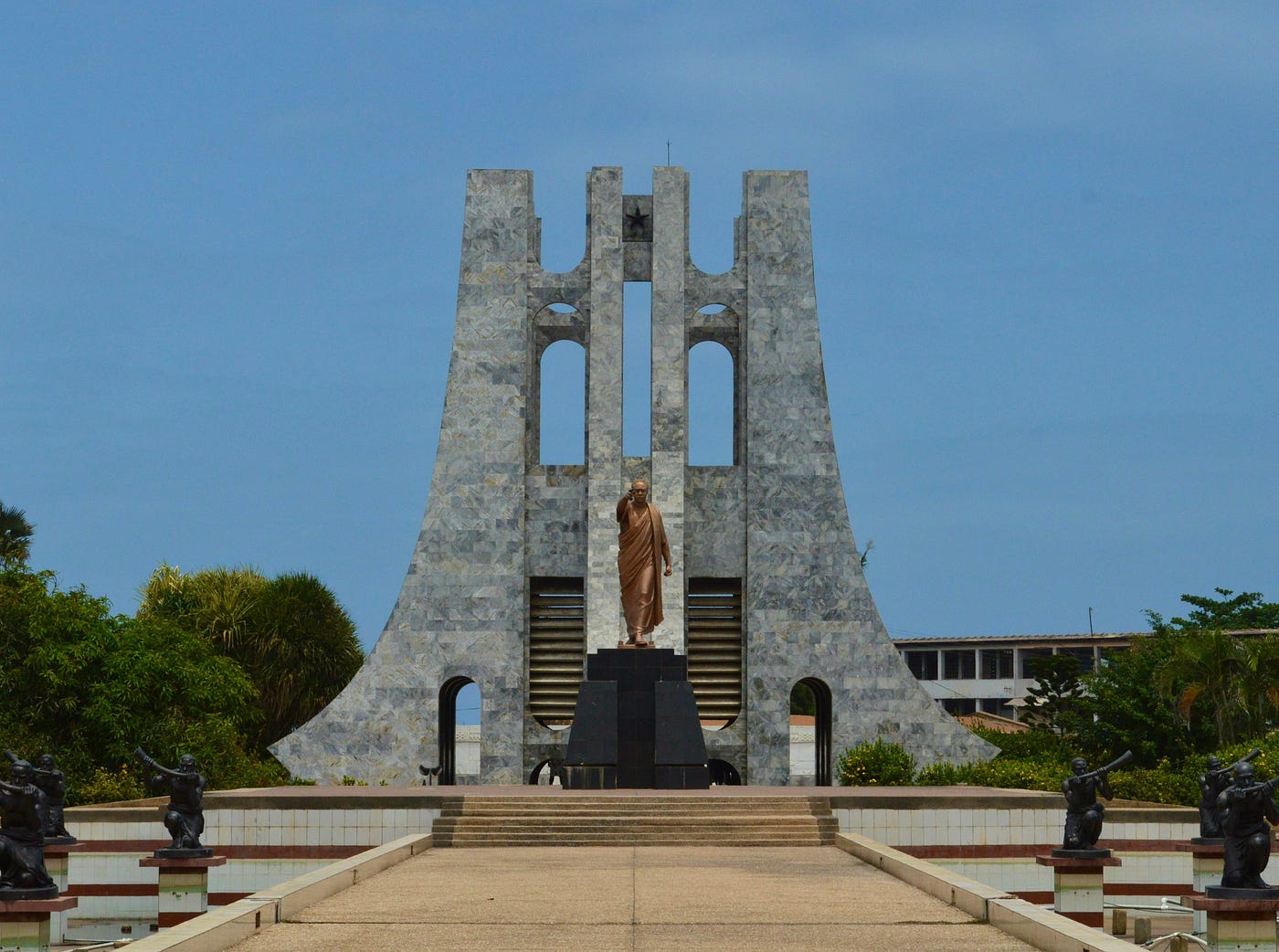
Not a Medium member? Read the full story here.
The sameness of Ghanaian names will shock you. The moment Mr. Ripton Green asked me, “Why are so many Ghanaian males given the name Kwame?” I understood his confusion. Have you heard of Dr. Kwame Nkrumah?
I have a cousin in the US who goes by that same name and another who goes by the name, Yoofi. Picture the confusion if someone calls out that name during a family reunion.
The name, Kwame — just like other Ghanaian names — is popular, and there’s a reason for that. Which I will explain. You would be right to think that Ghanaians don’t have any ingenuity if they all choose to name their male children by the same name.
But let me ask you this:
Is it original to be employed, to be married, to have kids, to own a car, etc.?
Is it original that most Americans speak English?
Is it original that all humans probably have first names and surnames?
Are there people who have legal nicknames?
I could go on, but I’m sure you caught my drift. Culture most often isn’t entirely original, but it’s fascinating.
So although I welcome your opinions on Ghanaian names, I can assure you that Ghanaian naming culture is quite similar to the usual conventionalities of human beings. I’ll give you a short and rough explanation of our naming culture that I hope helps you understand why so many Ghanaians have the same names.
I have already explained in this story of mine titled “About Me — Yoofi Biney” that my middle name, Yoofi, is the Fante variant of the Akan name “Kofi.”
It’s the name given to Fante male children born on Friday. My middle name is, however, not as popular as “Kofi,” which many Ghanaian parents seem to favour over mine. Have you ever heard of the late former UN Secretary-General, Kofi Annan?
In our culture, we have names for all the days of the week. They were named after Akan gods that most Ghanaians, who are Christianised, don’t know.
You’re probably asking how I know. Keep reading, and you’ll find out why. The clue is in my name.
These seven gods are Ayisi, Adwo, Bena, Wuku, Yaw, Afi, and Amen. Yes, you read that right. Just like the mythical Egyptian god of creation, Amen-Ra (also Amun-Ra). He’s an Akan god too.
The Akan word for “day” is “da.” So Wednesday named after the god Wuku is Wukuda, which means the day of Wuku. Akan names for all the seven days follow in this fashion. You may notice some deviation with Ayisi and Amen. They aren’t “Ayisida” or “Amenda.”
I can insinuate that they might have been like that, historically, but now they have changed to Kwasida and Memenda. It’s the nuances of a language that is centuries old.
When an Akan is born, he or she is considered a liege of these gods. The Akan word “akwa/akoa” means liege or servant. It generally doesn’t have a negative connotation because the child born on this or that day is regarded as the liege of this immortal god far superior to man.
So Akans affix the prefix “kwa,” which is a shortened form of “akwa,” to the name of the god to show this. A male child born on Saturday/Mememda is Kwame or Kwamena. Which means he is the liege of Amen.
I’m Yoofi (or Kofi), so I am the servant of the god, Afi. These are “soul names.” They are given to the child the moments after birth before they are officially named.
And as the servant of that god, the child has the traits of that god. For instance, Afi is adventurous, so I have a soul that seeks adventure. Some friends say they see that in my reading culture and entrepreneurial spirit.
A Saturday male child named Kwame/Kwamena/Ato is “combat ready” and a “healer.” You know, according to the Akan worldview, Amen is also called Nyame — which is the sky deity and the Akan word for “God.”
Among the Akans, Nyame is the creator and a supreme being. He is superior to all other gods. So every Kwame is considered creative.
There’s more. These names all have appellations, but I’ll talk about that later.
Akans also have words for numbers, which may be added to a child’s soul name to indicate whether they are the firstborn, or last born — to show birth order. For instance, my mom — also Friday-born — is the last of eight sisters, so she’s called Efua Awotwe.
Awotwe is the Akan word for eight, so she’s Efua the eighth-born. Not only can you tell the day she was born, but her position among her sisters. Akans make up the majority of the Ghanaian population, and what I have discussed so far relates only to them. There are also Akans in Ivory Coast, which borders Ghana to the west. These are Ivorian Akans, not Ghanaian Akans but our cultures are similar.
I don’t know much about the naming cultures of other Ghanaian ethnic groups, such as the Ga or Ewe. But here’s a fun fact: The Ewes have gender-neutral names.
Let me know what you think about that.





